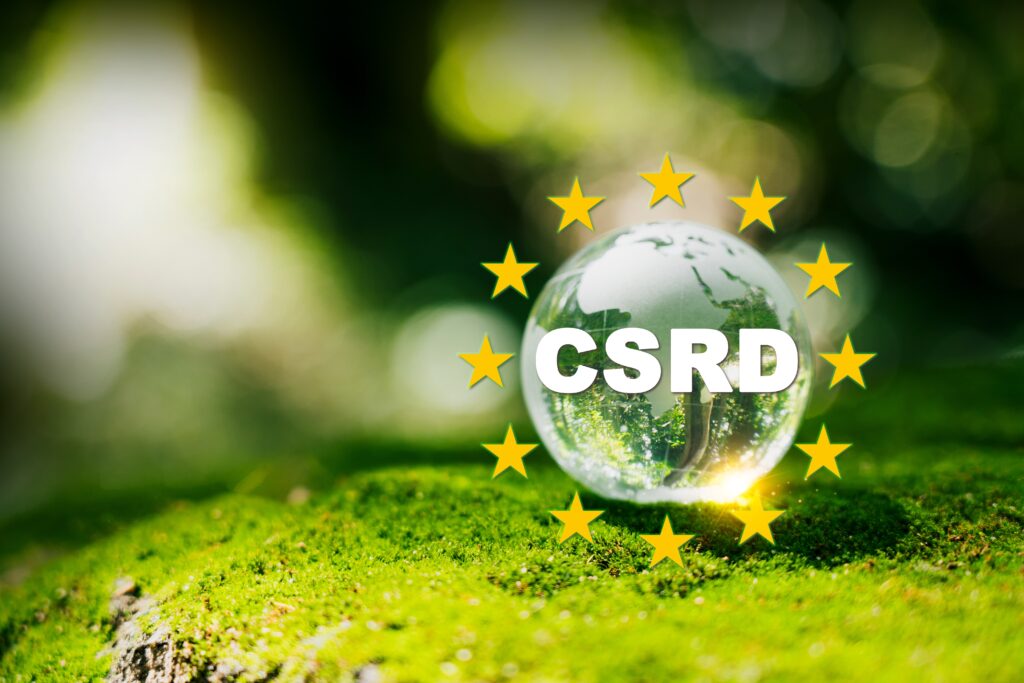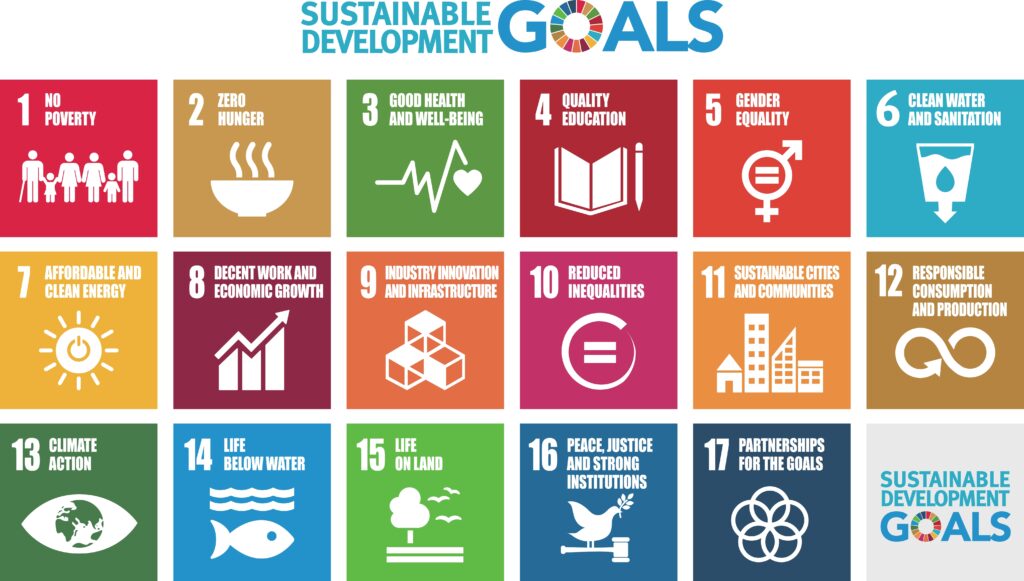
The EU Corporate Sustainability Reporting Directive (CSRD) is set to bring significant changes to the reporting requirements for companies operating in the European Union (EU). The directive, which is expected to become EU law later this year, will expand the scope and content of the existing non-financial reporting regime under the Non-Financial Reporting Directive (NFRD). It will also introduce a mandatory audit and assurance regime to ensure the reliability of data and prevent greenwashing.
What is the Corporate Sustainability Reporting Directive (CSRD)?
The CSRD is EU legislation that came into effect on 5th January 2023. It builds upon its predecessor, the Non-Financial Reporting Directive (NFRD), and expands the scope and reporting requirements for EU businesses. The goal of the CSRD is to ensure greater transparency and accountability in corporate sustainability practices, enabling investors, analysts, consumers, and other stakeholders to make more informed decisions based on ESG factors.
Scope and Timing
The CSRD will apply to all large EU companies, including EU subsidiaries of non-EU parent companies, that exceed certain criteria. These criteria include having more than 250 employees, a turnover of more than €40 million, or total assets of €20 million. The directive will also apply to companies with securities listed on an EU-regulated market, regardless of whether the issuer is established in the EU or a non-EU country.
For financial years starting on or after 1 January 2024, companies that are already subject to the NFRD will have to comply with the CSRD. The first CSRD report is expected to be produced in 2025. Companies that are not currently subject to the NFRD will have to comply with the CSRD from financial years starting on or after 1 January 2025 and report in 2026 on 2025 data. From 1 January 2026, the CSRD will be rolled out to listed small and medium-sized enterprises (SMEs), with an opt-out until 2028.
Additionally, non-EU undertakings with annual EU-generated revenues exceeding €150 million and a large or listed EU subsidiary or a significant EU branch will be subject to the CSRD from 2028. The respective subsidiary or branch will be responsible for publishing CSRD-style sustainability reports for these non-EU undertakings at a consolidated level.
Sustainability Disclosure Standards
Entities subject to the CSRD will be required to comply with detailed sustainability reporting standards known as the European Sustainability Reporting Standards (ESRS). These standards are being developed by the European Financial Reporting Advisory Group (EFRAG). The first set of reporting standards, specifying the information that undertakings should disclose, is expected to be adopted by the European Commission by 30 June 2023. The second set of reporting standards, which will cover complementary information requirements and sector-specific standards, is expected to be adopted by 30 June 2024.
Sustainability information will have to be reported in a clearly identifiable dedicated section of the company’s management report, which must be made publicly available. The CSRD will significantly expand the scope of the information that companies are required to report. Under the CSRD, entities will be required to provide disclosures on a range of sustainability matters, including climate change, biodiversity, working conditions, equality, non-discrimination, diversity and inclusion, human rights, and the effects of the undertaking on people and human health. Companies will also have to disclose information about their business strategy and the resilience of their business model and strategy to sustainability risks.
Sector-Specific Standards
The ESRS developed by EFRAG will include both general standards applicable to all entities and sector-specific standards. The sector-specific standards will be proportionate to the scale of the risks and effects related to sustainability matters in the relevant sector. EFRAG has indicated that its sector-specific standards will be developed independently of the sector-specific standards published by the Sustainability Accounting Standards Board (SASB). However, there will be efforts to map the sector-specific standards to SASB standards in later versions of the ESRS.
The sector-specific standards are especially important for sectors associated with high sustainability risks and effects. These standards will provide more tailored guidance for companies operating in sectors such as energy, transportation, manufacturing, and agriculture, where the risks and effects of sustainability issues are particularly significant.
Targets and Transition Plans
Undertakings subject to the CSRD will be required to disclose their sustainability targets and the transition plans they have established to ensure their business model and strategy align with the transition to a sustainable economy. These targets and transition plans should be compatible with the objectives of limiting global warming to 1.5°C in line with the Paris Agreement and achieving climate neutrality by 2050 in line with the EU’s goals in the European Climate Law.
Transition plans should be science-based, taking into account reports by the Intergovernmental Panel on Climate Change and the European Scientific Advisory Board on Climate Change. Undertakings will need to demonstrate how they are actively working towards reducing their environmental impact and aligning their operations with sustainability goals.
Value Chains
The CSRD will require undertakings to disclose their due diligence processes with regard to sustainability matters in their operations and value chain. This includes identifying and disclosing the principal actual or potential adverse effects connected to their value chain. Undertakings will also need to disclose any actions taken to prevent, mitigate, remediate, or bring an end to actual or potential adverse effects.
Companies will have to engage with their value chains, including suppliers, to collect the necessary data and information for disclosure. However, during the first three years of the CSRD, if information regarding the value chain is not available, undertakings can explain their inability to obtain such information instead of fully complying with the disclosure requirement. This provision aims to provide some flexibility to companies that may face challenges in collecting comprehensive data from their value chains initially.
Intangible Resources
Undertakings subject to the CSRD will be required to report on their “key intangible resources.” These are resources without physical substance that are fundamental to the undertaking’s business and a source of value creation. Key intangible resources may include relationships with stakeholders, intellectual property, brand reputation, and innovation capabilities. The CSRD recognises that intangible resources can have a significant impact on sustainability and that their reporting is essential for providing a comprehensive view of a company’s sustainability performance.
Reporting on intangible resources will help stakeholders understand the broader value creation aspects of a company’s operations and how these resources contribute to its overall sustainability strategy.
Forward-Looking Disclosures
Sustainability information reported under the CSRD should be forward-looking as well as retrospective. Undertakings will be required to provide both qualitative and quantitative information based on conclusive scientific evidence where appropriate. The ESRS will develop uniform indicators to facilitate consistent reporting across companies and sectors.
Forward-looking disclosures are crucial for assessing a company’s long-term sustainability strategy and its ability to adapt to future challenges and opportunities. By providing information on their future plans and targets, companies can demonstrate their commitment to sustainability and their efforts to drive positive change.
Interoperability with Other Reporting Frameworks
The CSRD recognises the need for global convergence in sustainability reporting standards and refers to the global baseline standards being developed by the International Sustainability Standards Board (ISSB). However, the EU rules differ significantly from recent proposals for climate-related disclosures from the U.S. Securities and Exchange Commission (SEC).
Under the CSRD, companies will be required to publicly disclose information about a broad range of environmental, social, and governance (ESG) matters on a “double materiality” basis. This means reporting on both how external factors affect the company and the extent to which the company generates significant effects on the environment and society. In contrast, the SEC’s proposals mainly focus on climate matters and outside-in materiality.
To reduce the reporting burden for globally active companies, the CSRD includes an equivalence regime that allows for substituted compliance under certain non-EU disclosure regimes. Non-EU parent undertakings may report on a consolidated basis for their EU subsidiaries if their consolidated sustainability reporting is prepared in an equivalent manner to the EU standards. However, it remains unclear whether substituted compliance will be available to U.S. or UK companies and their EU subsidiaries due to the divergence between local disclosure standards.
In conclusion, complying with the EU Corporate Sustainability Reporting Directive (CSRD) is essential for businesses looking to demonstrate their commitment to sustainability. WrxFlo, with its expertise in supply chain optimisation and software solutions, can assist in extracting the necessary data from your supply chain and support your reporting requirements. Get in touch with WrxFlo today to streamline your sustainability reporting process and ensure compliance with the CSRD.








